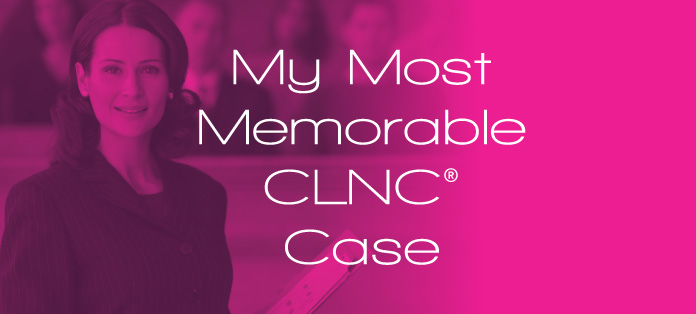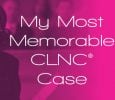My most memorable case was the very first one. For this, I received a 4 ft. tall stack of medical records which chronicled the final year of the patient’s life. The attorney contacted me after he had already determined the issues. That was too bad because, while the plaintiff was suing an acute rehabilitation unit within the hospital for the death of her husband, some of the problems were also incurred in the general hospital. An expanded focus might have addressed those issues.
Deviations from the standard of care included the inpatient rehabilitation facility’s (IRF) failure to maintain a safe environment by allowing the patient with a documented hand tremor, to handle a hot cup of coffee. The facts of the case as to whether the nurse spilled it on him or he spilled the coffee on himself were never firmly established and an incident report was never completed. The physician was not informed until hours later. The family found out when they, themselves, discovered the large and untreated blisters on the patient’s body the next day. The patient was quoted to have said to his family that he was afraid to complain in case he got worse care. The IRF record failed to show that the staff had provided him with appropriate meals and snacks as ordered by his diabetic diet. Meanwhile, the patient had complained that he was not being fed enough, and the record showed weight loss. He also sustained blisters from poor or absent skin assessments while wearing sequential compression devices (SCDs) in the general hospital. There was documentation of the patient having been given certain medications on admission to the IRF for up to the first two days before those same general hospital medications were officially reordered for IRF use. This was a violation of the state nurse practice act – administering medications without orders.
The IRF and parent facility gave statements that the patient spilled the coffee on himself and that missing notes in reference to providing meals and snacks or how well the patient ate them, did not prove he had not been fed. This did not sell because the rule of thumb is that if it’s not documented, it wasn’t done. And poor nutrition was likely because the patient’s documented weight loss was without other pathological causes noted. There was no solid argument offered by the defense regarding why no incident report had been documented for the burns. The risk manager stated that even though some of the medications had not been officially reordered in the first 48 hours of the IRF stay, the nurse’s initials next to those same drugs for the times and dates during that 48 hours was not solid proof that she actually administered those drugs without orders. While it’s likely those drugs were not even available for that patient in the IRF until they were officially reordered, the signatures next to them still incriminated the nurse involved. In the end, the final blow to the defense was when the plaintiff attorney offered as an exhibit, a copy of a book I had found in my research. This book was about patients’ rights and written by an ACLU attorney. This book had to do with hospital stays, patients’ rights and also with discrimination. The deceased was a black man. The case settled out of court two days before the trial was to begin.
What I learned, first-hand, was that everything taught in the CLNC® Certification Program has great value and you never know where or when you will need to apply this information. I used the visual tactics in creating a calendar for the stay, showing in red squares, the days that the record failed to document the provision of meals and snacks. Most of the calendar was red. The correlated weight loss was shown on an accompanying graph. Skin blisters were documented in large photos. A specialist from the manufacturer of the SCDs was asked to testify as to proper skin care when SCDs are being used and to also testify that the bilateral posterior blisters just below the gluteal folds was an injury known to occur when skin care protocols are not followed with the SCDs. The blisters in question were present on admission to the IRF. A copy of that state’s nurse practice act, along with the orders for the drugs 48 hours after IRF admission, plus the medication administration record system (MARS) pages that were signed by the nurse for the heretofore, theoretically unordered drugs was sufficient evidence to substantiate, if nothing else, a violation of the nurse practice act on paper.
My attorney-client was very happy with the information provided to him, and really happy with the visuals. The final coup was the book. I was paid well and contacted again. If I were to repeat this case, I would want to be called in much earlier. There was opportunity for a more comprehensive lawsuit, but the attorney was unaware of that until I gave him the details from the records. I hope the facilities involved have learned from this and are giving better patient care. I hope the nurse who signed for drugs she probably never gave until an order was in place, is now more careful about where she initials in the MARS.
Camille Joyner, RN, BSN, CCM, CLNC, CEO and co-owner of C. Joyner and Associates, LLC consults and manages Medicare Part A appeals for acute general rehabilitation hospitals. She also consults for records review/audit for physician medical pertinence and in non-Medicare negligence cases.
P.S. Comment to congratulate Camille and to share your most memorable CLNC® case.










A daunting task well done!
What was the book by the ACLU attorney?
I would love to know where I also could get a copy of the book written by the ACLU attorney? Is that possible?
This is a great story. I am working on a very complicated case right now, and am using as a reference a medical textbook that is out of budget. However I went to the medical library and copied it. I have been debating if I should use it or not, and now I will. Thanks, and Congrats!!